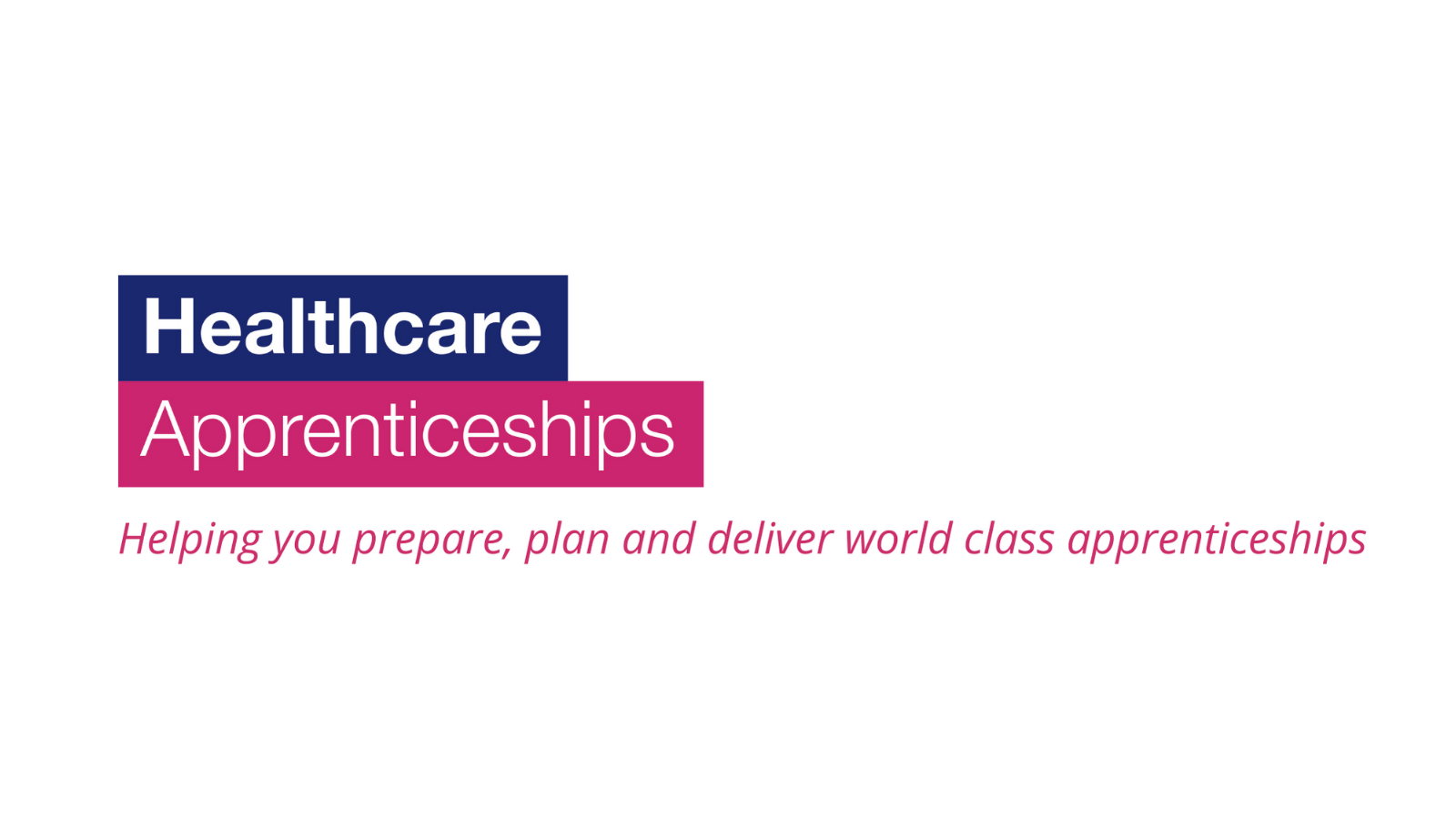HASO Archive
NHS England and Skills for Health have now closed the HASO (Healthcare Apprenticeship Standards Online) website. Here you’ll find some of the most important information and guides available for you to access.

What was HASO?
Sponsored by NHS England as part of the Workforce, Training and Education directorate strategic aims, the HASO website was hosted and maintained by Skills for Health. Aimed at employers and front-line managers, it provided a wide range or resources and information to help navigate apprenticeships and technical education in the health sector.
A select number of these resources will now be hosted on the Skills for Health website. Please bear in mind that as of May 2025, all HASO resources are no longer being updated.
The Institute for Apprenticeships and Technical Education (IfATE) closed on 31st May 2025. Skills England will now take on IfATE’s functions. Access up to date information about each apprenticeship, including the occupational standard, the apprenticeship assessment plan and funding band.
Find out more about Skills England.

Job Families
Sometimes it’s helpful to consider Apprenticeship Standards in the context of the job families to which they belong. You can find this particularly helpful when considering using a range of apprenticeships in your team.
We have 15 job families below with their descriptions and their factsheets available to download.
Accounting and Finance
Accounting and Finance staff ensure that budgets are spent wisely and for the benefit of the organisation and its patients. Individuals working in this area could be working in the payroll department, making sure all their colleagues get paid, handling payments for goods and services in an accounts department or purchasing goods and services in the procurement department.
Business and Administration Support
Business administrators have a highly transferable set of knowledge, skills and behaviours that can be applied in all sectors. Administrators in the Healthcare sector provide business support to both clinical and non-clinical staff. Organisations in the healthcare sector need to be well-organised and keep detailed records of patients and staff.
Dental
There are a variety of roles in the Dental sector. Providing dental care is a team responsibility, and each member of the dental team has a vital role to play in the promotion and maintenance of oral health. The majority of Dental Professionals are usually found outside hospitals, working in local communities and high street practices providing care to the general public. With an excellent knowledge of human anatomy and oral disease, they use the best clinical skills to help their patients.
Facilities and Estates
Individuals working in Facilities and Estates are responsible for the safe, secure and comfortable day-to-day working environment, ensuring that properties, assets and services are fully compliant with health and safety and other legislation. They’ll ensure that levels of performance delivered exceed customer expectations within budget for the properties, assets and services.
Healthcare Sciences
There are over 50,000 healthcare scientists working in the NHS and public health services. Together they provide the scientific backbone of the NHS and their work underpins 80% of all diagnoses. Their role stretches across the whole innovation pathway from academic and translational research, to patient-centred service transformation.
Midwifery
Midwifes deal with pregnant women which require support and advice from a professional. They’re likely the lead health professional contact for the woman, providing evidence-based information and helping make informed decisions and choices for the options and services throughout the pregnancy.
Nursing
Nursing is one of the most dynamic and rewarding roles within healthcare. They work directly with the patient in variety of settings which may include hospital wards, operating theatres, schools, patient homes and more.
There are four key areas of nursing that someone can choose to specialise in, with each leading on to a wide range of rewarding roles with plenty of scope for progression.
• Adult Nurse
• Mental Health Nurse
• Learning Disability Nurse
• Children’s Nurse.
Leadership and Management
Leaders are found in every part of the health sector, working at all levels and in all disciplines. Managers in the health sector work in a wide variety of disciplines including clinical care, human resources, finance, project management, hotel services and communications and corporate affairs.
Pharmacy
The pharmacy team makes a difference to the lives of individuals through an expert knowledge of medicines and health. They help people live longer and healthier lives based on the safe use of medicines and excellent healthcare advice. Members of the pharmacy team may work in a hospital, GP practice or community pharmacy setting.
Primary Care: Nursing
There are a broad range of apprenticeships available for use in primary and social care including business administration, nursing, customer service, healthcare and team leading. Apprenticeships can be used to develop new and existing staff in both clinical and non-clinical roles. The below factsheets show some of the nursing related roles.
Psychological Professional
The Wellbeing and Psychology Professions Factsheet below gives an overview of the apprenticeships available in this area. Clinical Associate in Psychology, Psychological Wellbeing Practitioner (PWP) and Peer Worker are just some of the apprenticeship standards that are approved for delivery.
The People Professions – HR & OD
Human Resources (HR) and Organisational Development (OD) professionals are critical to the Healthcare sector and play a unique professional role, whatever the size of organisation they work in. Human resources (HR) make sure that colleagues both on the frontline and behind the scenes are fully supported and able to do their jobs.
Guidance and printables
You’re welcome to download, share or print any of the resources we’ve posted below.
The benefits of taking on an apprentice
Apprenticeships are a great way to grow talent and develop a motivated, skilled, and qualified workforce. Apprenticeships allow you to diversify and freshen up your workforce. This infographic shows just some of the benefits of taking on an apprentice.
Quick guide to the terminology
This quick guide gives a brief overview of the terminology that’s used when talking about apprenticeships. Download this resource to guide and support you when taking on an apprentice.
Functional Skills Level 2 equivalents
This handy flyer shows what are Level 2 equivalents of functional skills. Please refer to the current apprenticeship funding rules for further information about functional skills requirements in an apprenticeship.
Apprenticeship roles and responsibilities
This easy-to-read flyer for apprentices or employers will help give a better understanding of everyone’s roles and responsibilities within an apprenticeship.
How to fund the salary of apprentices
The main difference between apprentices when compared with traditional students, is that apprentices are employed for the duration of their apprenticeship. This means that employers must find the salary costs for the student during training and manage their release time and backfill during study. This printable shows just some of the ways to fund the salary of apprentices.
11 tips for employers: How to prepare an apprentice
This printable shows 11 tips on how to prepare for an apprenticeship for employers. Feel free to download, share and print this document.
FAQs
Download the frequently asked questions for both employers and apprentices below.
Frequently asked questions – Employers
We have created a PDF document with all our FAQs on apprenticeships for employers.
Frequently asked questions – Apprentices
We have created a PDF document with all our FAQs on apprenticeships for apprentices.

Useful Links
We have gathered some relevant links for you to find useful information below.
Explore the range of roles in the NHS. Find a course in health and care. Find courses and training. Their course finder has over 1,000 courses leading to a range of NHS careers.
FutureNHS is a collaboration platform that empowers everyone working in health and social care to safely connect, share and learn across boundaries.
NHS Jobs is the official online recruitment service for the NHS in England and Wales.
If you’re considering undertaking an apprenticeship you can learn more about apprenticeships here.
Links to government guidance
How to take on an apprentice
This gov.uk guide what an employer needs to do and the things they need to consider if they want to employ an apprentice.
Apprenticeship funding rules
Access the rules employers and training providers must follow to get funding for training and assessing apprentices in England.
National minimum wage
The National Minimum Wage is the minimum pay per hour almost all workers are entitled to. The minimum wage a worker should get depends on their age and if they’re an apprentice.
Career Starter link
Many apprenticeships are a great opportunity for those looking for their first role after leaving full-time education. Learn more about some of the career starter apprenticeships.
Apprenticeship Support Centre
Access a wide range of guidance for both potential apprentices and employers.
Apprenticeship off-the-job training
How employers and training providers should meet the off-the-job training requirements for an apprenticeship
